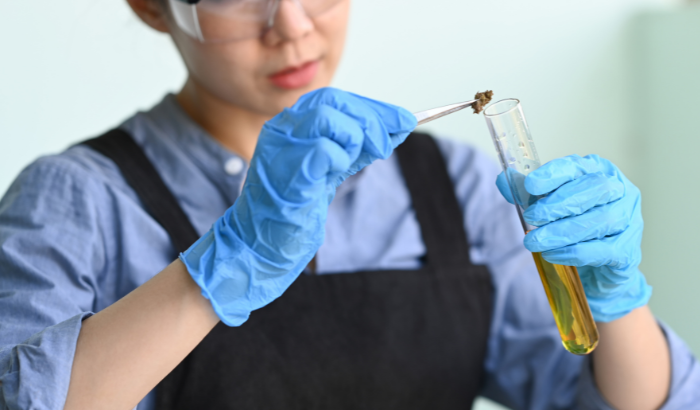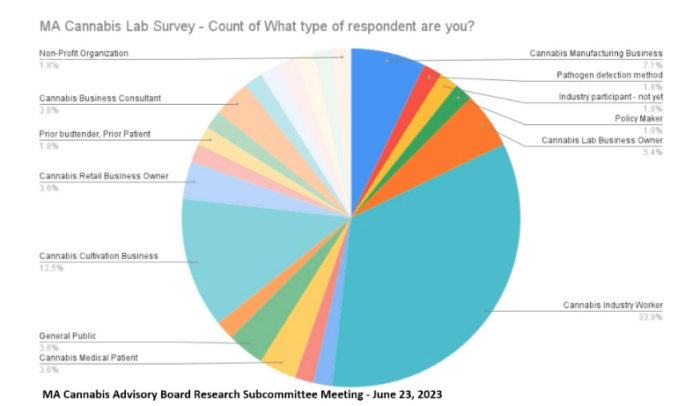
“At the heart of these recommendations is that we’re lacking clear standards and guidelines.”
There has been a lot of turmoil on the Massachusetts cannabis lab-testing front over the past few months.
In March, the Framingham-based MCR Labs accused Cannabis Control Commission staff of “harassment” and “intimidation” during an unannounced inspection of their facility.
In early June, at a hearing held by the state legislature’s Joint Committee on Cannabis Policy, industry stakeholders teed off on regulators in their testimonies to lawmakers. Specifically, cannabis testing experts noted the problem of cultivators gaming the system by seeking labs that tweak results for higher potency. In his turn, MCR Labs Founder and CEO Michael Kahn said, “Lab shopping is widespread [in Massachusetts] … The financial incentives are strong and there are no real incentives for honesty or accuracy.”
While CCC members have reportedly been slow to address complaints around testing in Mass, as part of the body’s “regulatory review period to address necessary changes and updates to the rules and regulations governing the cannabis industry,” its Cannabis Advisory Board (CAB) Research Subcommittee began “evaluating the area of cannabis lab testing and product labeling” last October, as well as “discussing reports of inconsistencies and potential safety issues in how cannabis and cannabis product samples are tested, how test results and contaminants are reported, and how operators are presenting testing and potency data to patients and consumers on product labels.”

After several months of fielding input “via email, social media, and other in-person networking events,” in their public meeting Friday morning the Research Subcommittee issued and approved “recommendations related to lab testing and product labeling based on its evaluation of existing reports, qualitative data collected through the solicitation of feedback from industry and consumer stakeholders, and best practices utilized in other legal cannabis states.” The final recs are:
- Recommendation #1: Expand the currently existing Open Data Portal to include Open METRC Data Related to Lab Testing.
- Recommendation #2: Define THC (Total THC, THCA, THCV, THC etc) and provide clear guidance for both labs and operators on how to appropriately and consistently test for, calculate and label THC for the benefit of consumers. CCC to consider adopting a range for the percentage of THC for flower based products and review other states’ models.
- Recommendation #3: Convene an ongoing working group similar to the model in Colorado to review and make ongoing recommendations on rules and regulations related to the testing and labeling of cannabis and cannabis products. Advise on revisions necessary to the current testing protocols and labeling.
- Recommendation #4: Utilize the Secret Shopper Program that is part of the existing CCC regulations. CCC to consider ways to report to the public for transparency and consumer safety, explore other models in other States.
- Recommendation #5: The CCC to commence a feasibility study around the implementation of a cannabis standards lab in Massachusetts based on lessons learned from other states that are implementing cannabis reference/standards labs. Other states include: California, Michagan and Maryland.
During the meeting, subcommittee member Amanda Rositano said, “What’s at the heart of these recommendations is that we’re lacking clear standards.” Now that they’ve made the suggestions, it’s up to the CCC to parse them as they write new guidelines.
Following the vote approving the recommendations, Research Subcommittee Chair Dr. Marion McNabb said, “I am hopeful they may help address some of the high level issues related to lab testing we see locally here in Massachusetts.”
























